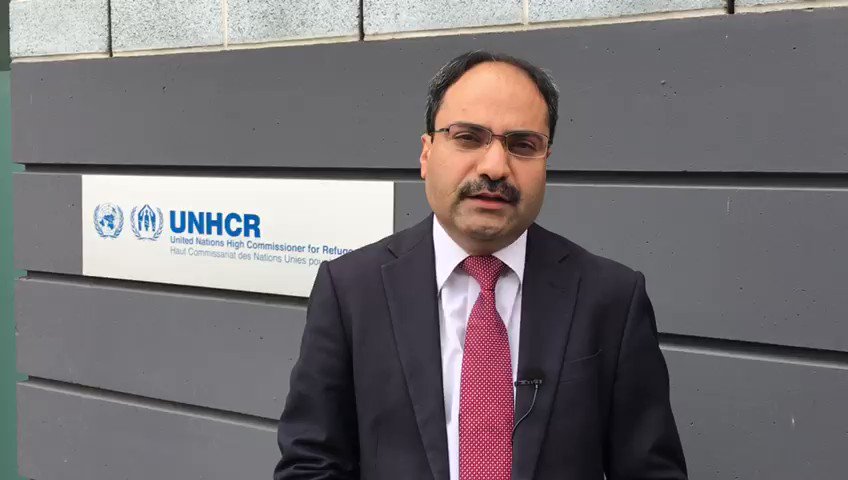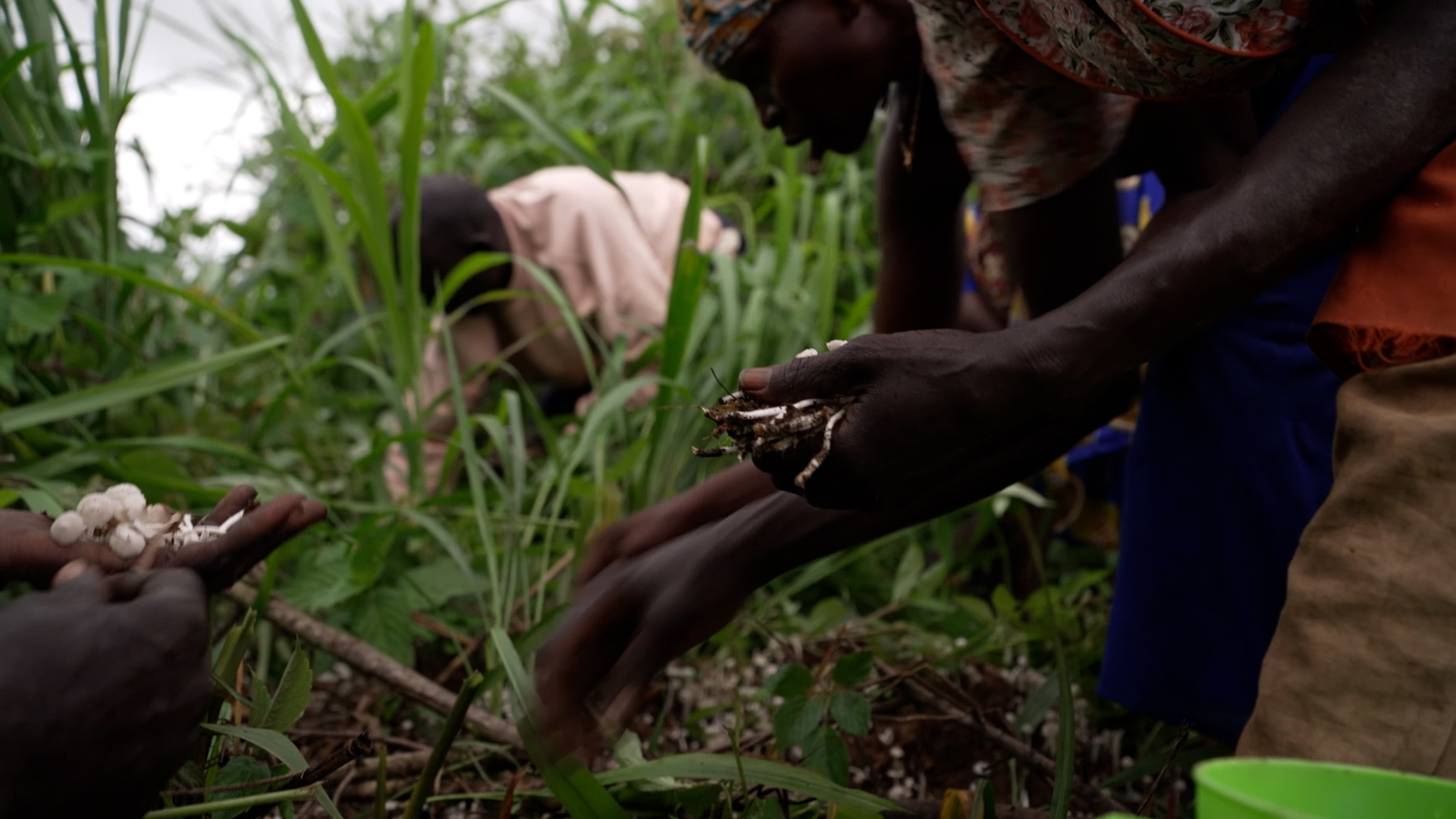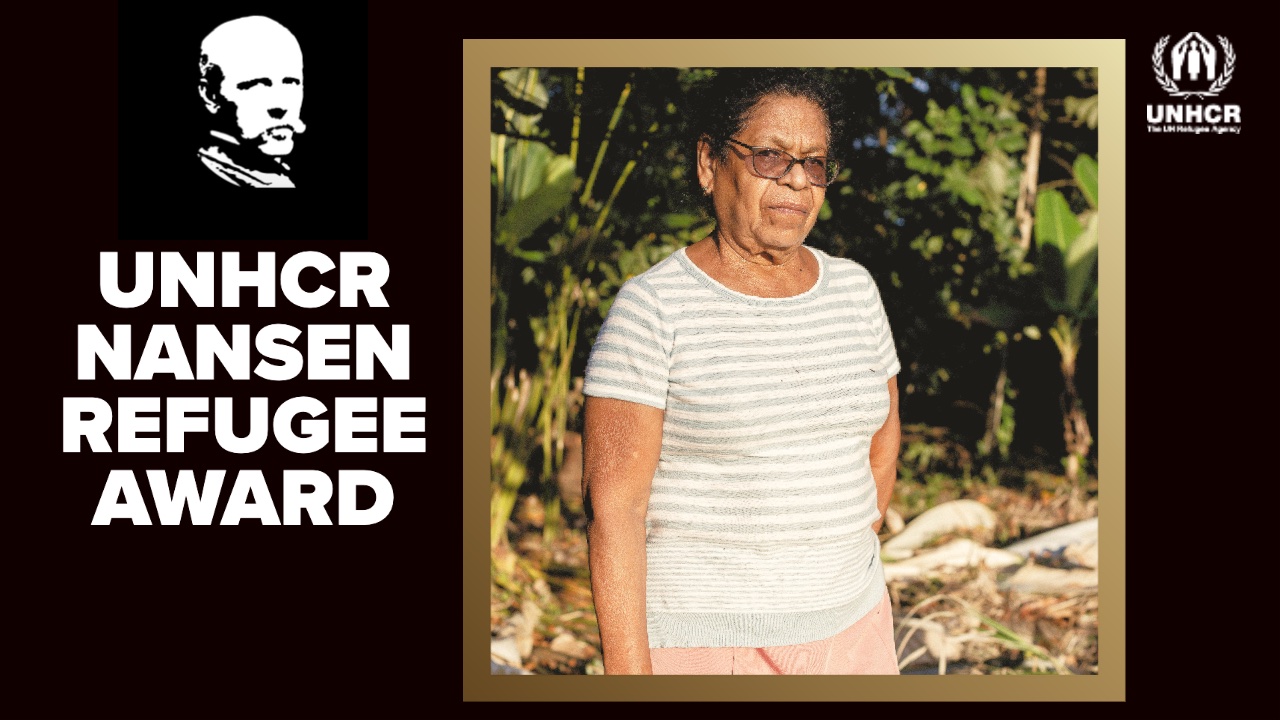UNHCR delivers food and relief items to DRC refugees in Angola
UNHCR delivers food and relief items to DRC refugees in Angola

DUNDO, Angola – Chief Kazenzi Kamwenza did not expect the violence in the Democratic Republic of the Congo’s Kasai Province to spread to his home village in Kamako, a few kilometres from the Angolan border. The looming danger forced him to hastily gather his family of nine and shepherd them south across the border.
“I expected to return home in a few hours,” he says. “That, after all, is where our life and everything related to it is.”
Unfortunately, the expectation that they would soon return home dwindled as it became increasingly clear that such a move would be impossible. The reception centre in Moussunge where they are now staying is crowded, hot and dry. It is often shrouded in billows of smoke from open fires lit by refugees for cooking.

Since their arrival, Kamwenza has been struggling to feed his family regularly.
“What stresses me most is that I left fields of cassava at home while my family goes hungry here,” he says.
By all accounts, he was a wealthy man in his village. He had employees working his cassava fields while his wife managed the family grocery store. With some of the proceeds from his fields, he was able to lend money to fellow villagers who paid him back with interest.
“To be reduced to nothing by a conflict that has held us hostage since August last year is a very bitter pill to swallow,” he says miserably. “If a man cannot feed his family then what sort of man is he?”
Kamwenza and his family are among more than 3,000 new arrivals that have streamed into Angola over the last few days. Over 20,000 Congolese refugees have sought refuge in Angola since early April, UNHCR detailed in a press briefing earlier today.

The Angolan army has been transporting new arrivals from border points to the two receptions centres in Cacanda and Moussunge. Tfumba Soleso, 29, and her three children were transported from the border after spending four days running through the bush.
“We heard of the Kamuina Nsapu militia for the first time, when they told us to run away because they will be killing people,” says Tfumba. “After four to five days they came back, started burning our houses and that’s when we decided to run away.”
UNHCR dispatched an emergency team to Dundo two weeks ago to coordinate a multi-functional response that includes other UN and aid agencies and the Angolan Government. The joint response is helping address refugees’ immediate needs and provide food, shelter and other relief items.
"If the children can at least go to bed with something in their stomachs, I am a little calm.”
“Since we arrived two weeks ago, our efforts to advocate for the urgent relocation of refugees from the temporary reception centres has borne fruit,” says Dr. Asis Das, UNHCR’s Senior Public Health Officer based in Angola. UNHCR is currently assisting the Angolan authorities to identify a suitable relocation site at least 50 kilometres from the border.
Dr. Das further explains that UNHCR has been able to deliver food to refugees on time as maize meal, beans, salt and oil is purchased from local suppliers in Dundo. On cue, Kawenza’s eldest daughter returns with a plate of cooked vegetables given to the family.
“My wife was embarrassed to ask for food but if the children can at least go to bed with something in their stomachs, I am a little calm,” he says.
Kawenza is grateful to be safe and have shelter and food. “To the Government of Angola, UNHCR and everyone else involved we cannot thank you enough.”
Additional reporting and editing by Catherine Wachiaya in Nairobi, Kenya









